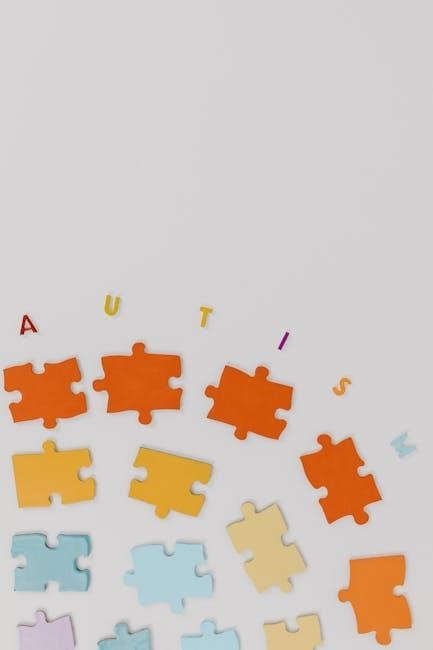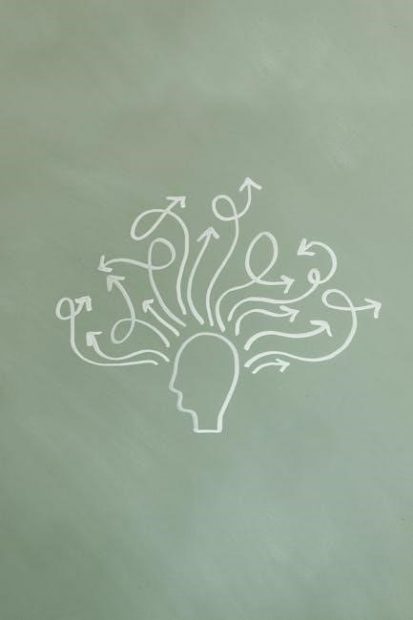Functional cognition refers to the ability to use and integrate cognitive functions‚ motor skills‚ and performance patterns to execute daily tasks effectively․ Occupational therapy plays a vital role in enabling individuals with cognitive impairments to perform meaningful activities‚ promoting independence and enhancing quality of life through personalized interventions․
1․1 Definition of Functional Cognition
Functional cognition encompasses the mental processes that enable individuals to perform daily activities‚ such as memory‚ attention‚ problem-solving‚ and executive functions․ It integrates cognitive skills with motor abilities and daily routines‚ allowing people to manage tasks like cooking‚ managing finances‚ and maintaining safety․ Occupational therapists often assess these abilities to identify deficits and develop strategies to enhance independence and overall quality of life․
1․2 Role of Occupational Therapy in Addressing Cognitive Function
Occupational therapy (OT) addresses cognitive function by enabling individuals to participate in meaningful activities despite cognitive deficits․ OT practitioners assess cognitive strengths and limitations‚ then develop personalized strategies to enhance performance in daily tasks․ Interventions may include cognitive training‚ compensatory techniques‚ and environmental modifications to support independence․ The goal is to bridge the gap between cognitive abilities and real-world demands‚ helping individuals achieve their occupational goals and improve overall quality of life․
Understanding Functional Cognition
Functional cognition encompasses the mental processes enabling individuals to perform daily tasks‚ combining memory‚ attention‚ and problem-solving skills to navigate real-world challenges effectively․
2․1 Cognitive Functions and Their Impact on Daily Activities
Cognitive functions such as memory‚ attention‚ and problem-solving are essential for executing daily tasks․ These abilities allow individuals to manage activities like cooking‚ managing finances‚ and maintaining personal care․ Impairments in these functions can significantly hinder independence‚ making everyday tasks challenging․ Occupational therapy addresses these deficits by providing strategies to enhance cognitive performance‚ thereby improving the individual’s ability to engage in meaningful occupations and live independently․
2․2 Assessing Functional Cognition in Occupational Therapy
Assessing functional cognition involves evaluating an individual’s ability to perform tasks requiring memory‚ attention‚ and problem-solving․ Occupational therapists use standardized tests and observational tools to identify deficits in daily functioning․ These assessments help determine how cognitive impairments impact activities like cooking‚ managing finances‚ or personal care․ By understanding the extent of cognitive limitations‚ therapists can develop targeted interventions to enhance independence and improve overall quality of life․ Accurate assessment is crucial for creating effective treatment plans tailored to individual needs․

Assessment Tools in Functional Cognition
Occupational therapists utilize tools like the Cognistat and others to assess cognitive functions such as memory‚ attention‚ and problem-solving‚ guiding effective treatment strategies․
3․1 Common Assessments Used in Occupational Therapy
Occupational therapists commonly use assessments like the Cognistat‚ Montreal Cognitive Assessment (MoCA)‚ and Mini-Mental State Examination (MMSE) to evaluate functional cognition․ These tools measure memory‚ attention‚ problem-solving‚ and daily functioning‚ providing insights into cognitive strengths and deficits․ Standardized and evidence-based‚ they guide the development of personalized treatment plans‚ ensuring targeted interventions that enhance independence and improve quality of life for individuals with cognitive impairments․
3․2 The Role of Standardized Tests in Evaluating Cognitive Function
Standardized tests are essential in occupational therapy for assessing cognitive function‚ providing reliable and objective data․ They evaluate memory‚ attention‚ and executive functioning‚ offering a baseline for treatment planning․ These tools ensure consistency across assessments‚ enabling therapists to track progress and adapt interventions effectively․ By identifying specific deficits‚ standardized tests guide targeted strategies to improve daily functioning and independence in individuals with cognitive impairments․ They are integral to evidence-based practice‚ ensuring accurate and measurable outcomes in occupational therapy settings․

Interventions in Occupational Therapy for Functional Cognition
Occupational therapy interventions focus on goal-setting and personalized plans to address cognitive deficits‚ enhancing daily functioning and independence through evidence-based strategies tailored to individual needs․
4․1 Goal Setting and Personalized Treatment Plans
Goal setting in occupational therapy for functional cognition involves creating personalized treatment plans aligned with clients’ specific needs and aspirations․ Therapists collaborate with clients to identify achievable objectives‚ focusing on improving daily activities and cognitive skills․ These plans are tailored to address individual deficits‚ ensuring interventions are relevant and effective․ Regular assessments and adjustments ensure the plans remain targeted and client-centered‚ promoting meaningful progress and independence․
4․2 Evidence-Based Strategies for Improving Cognitive Function
Evidence-based strategies in occupational therapy focus on proven methods to enhance cognitive function‚ such as Cognitive Adaptation Training (CAT) and errorless learning․ These approaches address memory‚ attention‚ and problem-solving deficits․ Techniques like spaced retrieval training and compensatory strategies are also effective․ Occupational therapists tailor interventions to individual needs‚ incorporating daily activities to promote functional cognition․ These strategies aim to maximize independence‚ ensuring clients can perform meaningful tasks despite cognitive challenges‚ and are supported by research and clinical practice in the field of occupational therapy․

Practical Strategies for Enhancing Functional Cognition
Practical strategies include task-specific training‚ memory aids‚ and incorporating routine activities to enhance problem-solving and daily functioning․ Visual supports and structured routines also aid cognitive rehabilitation effectively․
5․1 Cognitive Training and Rehabilitation Techniques
Cognitive training involves targeted exercises to improve memory‚ attention‚ and executive functions․ Techniques include compensatory strategies like memory aids and errorless learning․ Rehabilitation focuses on task-specific practice‚ enhancing real-world application of skills through repetitive‚ meaningful activities․ These methods aim to bridge the gap between cognitive deficits and daily functioning‚ empowering individuals to regain independence in tasks such as medication management and problem-solving․ Structured routines and visual supports further reinforce learning‚ making rehabilitation both effective and sustainable for long-term cognitive improvement․
5․2 Incorporating Daily Activities into Cognitive Therapy
Integrating daily activities into cognitive therapy strengthens the connection between cognitive skills and real-life tasks․ Occupational therapists use tasks like cooking‚ budgeting‚ and time management to enhance functional cognition․ These activities are tailored to the individual’s needs‚ fostering practical application of cognitive strategies․ By embedding therapy within familiar routines‚ individuals build confidence and independence‚ ensuring that cognitive improvements translate into meaningful daily living․ This approach not only addresses specific deficits but also promotes overall well-being and participation in valued life roles․

Case Studies and Success Stories
Case studies highlight real-life examples of individuals achieving improved functional cognition through occupational therapy‚ demonstrating successful outcomes in daily living and community reintegration․
6․1 Real-Life Examples of Functional Cognition Improvement
A 45-year-old individual with traumatic brain injury regained independence in managing finances and cooking through tailored occupational therapy strategies․ Another case involved an elderly woman with dementia who improved memory recall using cognitive aids․ A young adult with stroke relearned problem-solving skills‚ enabling return to work․ These success stories highlight how occupational therapy adapts to unique needs‚ fostering meaningful engagement and enhancing daily functioning through evidence-based‚ client-centered approaches․
6․2 The Impact of Occupational Therapy on Daily Living
Occupational therapy significantly enhances daily living by empowering individuals to perform essential tasks independently; Through tailored interventions‚ it addresses cognitive deficits‚ improving memory‚ problem-solving‚ and decision-making skills․ This fosters independence in activities like medication management‚ meal preparation‚ and financial tasks․ For individuals with cognitive impairments‚ occupational therapy not only boosts self-efficacy but also reduces caregiver burden‚ promoting overall well-being and participation in meaningful life roles․
Future Directions in Functional Cognition and Occupational Therapy
Future directions include integrating emerging technologies like virtual reality and AI to enhance cognitive rehabilitation․ Interdisciplinary collaboration will further advance personalized and evidence-based occupational therapy practices․
7․1 Emerging Trends and Technologies in Cognitive Rehabilitation
Emerging trends include the use of virtual reality (VR) and artificial intelligence (AI) to create immersive‚ personalized cognitive training programs․ Wearable technology and telehealth platforms are expanding access to remote rehabilitation services․ Gamification of therapy tasks enhances engagement and motivation․ Advances in neuroplasticity research are guiding more targeted interventions․ These innovations‚ combined with interdisciplinary collaboration‚ promise to revolutionize how occupational therapists address functional cognition‚ offering more effective and accessible solutions for individuals with cognitive impairments․
7․2 The Role of Interdisciplinary Collaboration in Advancing Practice
Interdisciplinary collaboration is crucial for advancing occupational therapy in functional cognition․ By integrating insights from psychology‚ neurology‚ and education‚ therapists can develop comprehensive‚ evidence-based interventions․ Teamwork ensures a holistic approach‚ addressing the complex needs of individuals with cognitive deficits․ Collaboration also fosters innovation‚ as diverse perspectives lead to creative solutions and improved outcomes․ This collective effort enhances the quality of care‚ making occupational therapy more effective in supporting individuals to regain independence and participate fully in daily life․
Occupational therapy is vital for enhancing functional cognition‚ empowering individuals to regain independence in daily activities and improve their quality of life through tailored interventions․
8․1 Summary of Key Concepts and Takeaways
Functional cognition is essential for performing daily activities‚ requiring the integration of cognitive‚ motor‚ and adaptive skills․ Occupational therapy plays a pivotal role in addressing cognitive deficits‚ enabling individuals to achieve independence and improve their quality of life․ Key assessments‚ such as the Cognistat‚ help identify deficits and track progress․ Personalized interventions‚ including cognitive training and practical strategies‚ empower clients to meet their goals․ The client-centered approach ensures tailored support‚ fostering meaningful engagement in daily life and community reintegration․
8․2 The Importance of Occupational Therapy in Promoting Functional Cognition
Occupational therapy is crucial for enhancing functional cognition‚ as it bridges cognitive deficits with daily activities․ It employs evidence-based strategies to improve independence and participation in real-world tasks․ The client-centered approach ensures interventions are tailored to individual needs‚ focusing on practical outcomes․ This specialized support enables individuals to overcome challenges and engage meaningfully in their environments‚ making OT indispensable in cognitive rehabilitation․
